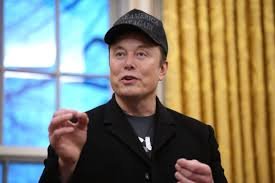Saudi Arabia’s growing influence in the global automotive and technology sectors is attracting the attention of major industry leaders. One of the most anticipated visits is that of Elon Musk, the visionary CEO of Tesla, at a crucial time for the electric vehicle (EV) giant. As Tesla faces increasing competition, production challenges, and financial pressures, Saudi Arabia’s strategic investments and resources could play a defining role in shaping the company’s future. This meeting signifies more than just business discussions; it could signal a transformative alliance that will reshape the global EV landscape.
## The Strategic Importance of Saudi Arabia
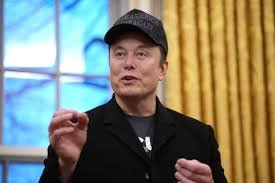
Saudi Arabia has been making significant strides toward diversifying its economy under Crown Prince Mohammed bin Salman’s Vision 2030 initiative. The kingdom is aiming to reduce its dependence on oil by investing in futuristic industries, including electric vehicles, artificial intelligence, and renewable energy. Tesla’s presence in the region aligns perfectly with this vision.
### Saudi Arabia’s Push into EVs
Saudi Arabia has shown immense interest in the EV industry, demonstrated through its investment in Lucid Motors, a key Tesla competitor. The Public Investment Fund (PIF) of Saudi Arabia owns a majority stake in Lucid and has committed to building a massive EV manufacturing plant in the kingdom. By welcoming Elon Musk, Saudi leaders may be looking to diversify their EV portfolio, potentially opening doors for Tesla to set up a production facility in the region.
### Access to Critical Resources
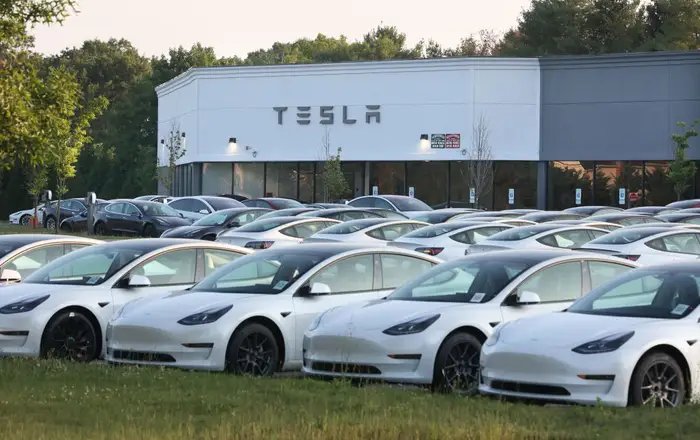
One of the major advantages Saudi Arabia offers is its vast resources, particularly lithium and other materials crucial for battery production. Tesla, which is always on the lookout for stable and cost-effective sources of raw materials, could benefit from securing long-term agreements with Saudi suppliers. This could help the company reduce its reliance on markets such as China and stabilize supply chain disruptions.
## Tesla’s Challenges and the Need for Expansion
Tesla is currently navigating a complex landscape filled with hurdles, ranging from slowing EV demand to rising competition from both traditional automakers and new entrants. Musk’s visit to Saudi Arabia comes at a time when Tesla is seeking new investment opportunities and strategic partnerships to maintain its dominance.
### Increased Competition
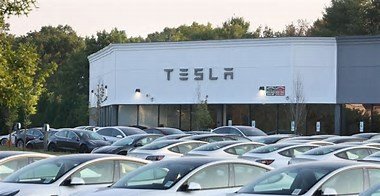
With competitors like BYD, Rivian, and traditional automotive giants ramping up their EV production, Tesla’s market share is under constant pressure. The potential partnership with Saudi Arabia could provide a new manufacturing hub, allowing Tesla to expand into the Middle Eastern and African markets more efficiently.
### Financial Pressures and Stock Volatility
Tesla’s stock has been highly volatile, influenced by global economic conditions, production concerns, and Musk’s leadership decisions. Securing financial backing or investment from Saudi entities could provide Tesla with much-needed capital to fund expansion projects and research in battery technology and AI-driven automation.
## Potential Outcomes of Musk’s Visit
Elon Musk’s visit to Saudi Arabia could result in several strategic outcomes, each with far-reaching implications for Tesla and the EV industry as a whole.
### Establishing a Gigafactory in Saudi Arabia
One of the most anticipated discussions revolves around the possibility of Tesla setting up a Gigafactory in Saudi Arabia. Given the kingdom’s commitment to renewable energy and its vast land availability, this could be a game-changing move for both Tesla and Saudi Arabia’s EV ambitions. A Saudi-based Gigafactory could significantly lower Tesla’s production costs and enhance its ability to meet regional demand.
### Securing Saudi Investment in Tesla
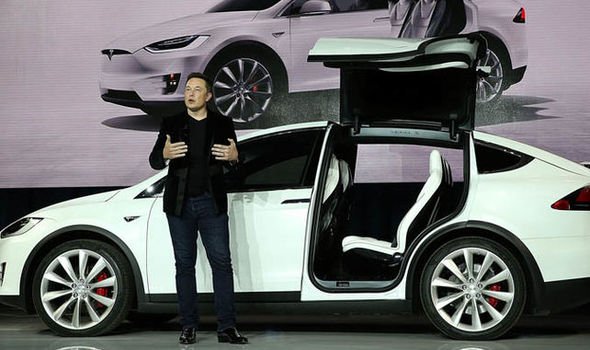
Another possible outcome is direct Saudi investment in Tesla, either through stock purchases or strategic partnerships. The kingdom has demonstrated its willingness to invest in groundbreaking technologies, and an alliance with Tesla could further accelerate the company’s innovations in autonomous driving and battery efficiency.
### Collaboration on Renewable Energy Initiatives
Tesla’s interest in renewable energy solutions, such as solar energy and battery storage, aligns with Saudi Arabia’s goal of reducing its carbon footprint. Potential collaborations in solar panel manufacturing or battery storage projects could pave the way for a long-term business relationship between Tesla and Saudi Arabia.
## Challenges and Risks
While the potential benefits of a Tesla-Saudi Arabia partnership are significant, several challenges and risks must be considered.
### Political and Ethical Considerations
Saudi Arabia’s human rights record and geopolitical dynamics often come under global scrutiny. Musk’s decision to engage with Saudi leaders might attract criticism from human rights organizations and some Tesla stakeholders.
### Market and Regulatory Challenges
Operating in Saudi Arabia requires navigating complex regulatory environments and business policies. Tesla would need to ensure that its operational framework aligns with the kingdom’s investment and labor laws.
### Competition with Existing Saudi EV Investments
Saudi Arabia’s commitment to Lucid Motors could create potential conflicts of interest. Tesla would need to carve out a distinct role in the Saudi market without directly undermining the kingdom’s previous EV investments.
## Conclusion
Elon Musk’s visit to Saudi Arabia comes at a crucial time for Tesla, as the company seeks expansion opportunities and financial backing amid increasing global competition. Saudi Arabia’s Vision 2030 initiative, abundant resources, and strategic location present a compelling case for Tesla to explore deeper collaborations. While challenges remain, a successful partnership could redefine Tesla’s future, boost Saudi Arabia’s position as an EV powerhouse, and accelerate the global transition to sustainable transportation. As discussions unfold, the world will be watching to see if this pivotal meeting leads to groundbreaking developments in the EV industry.
